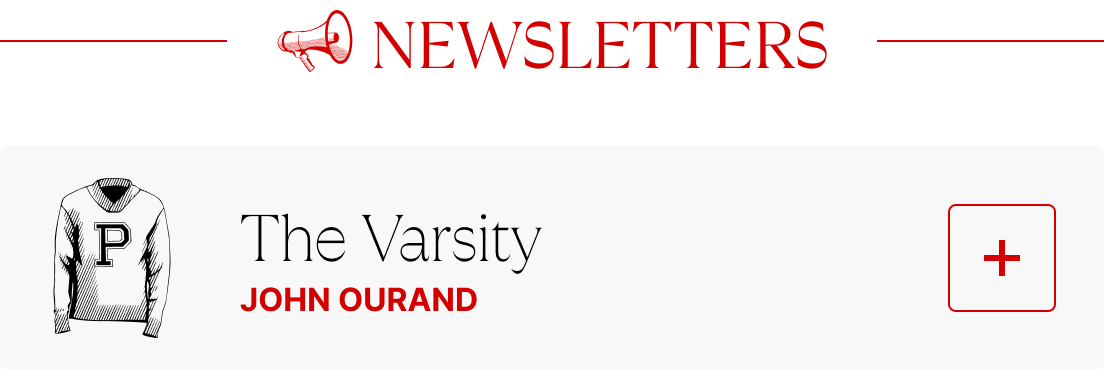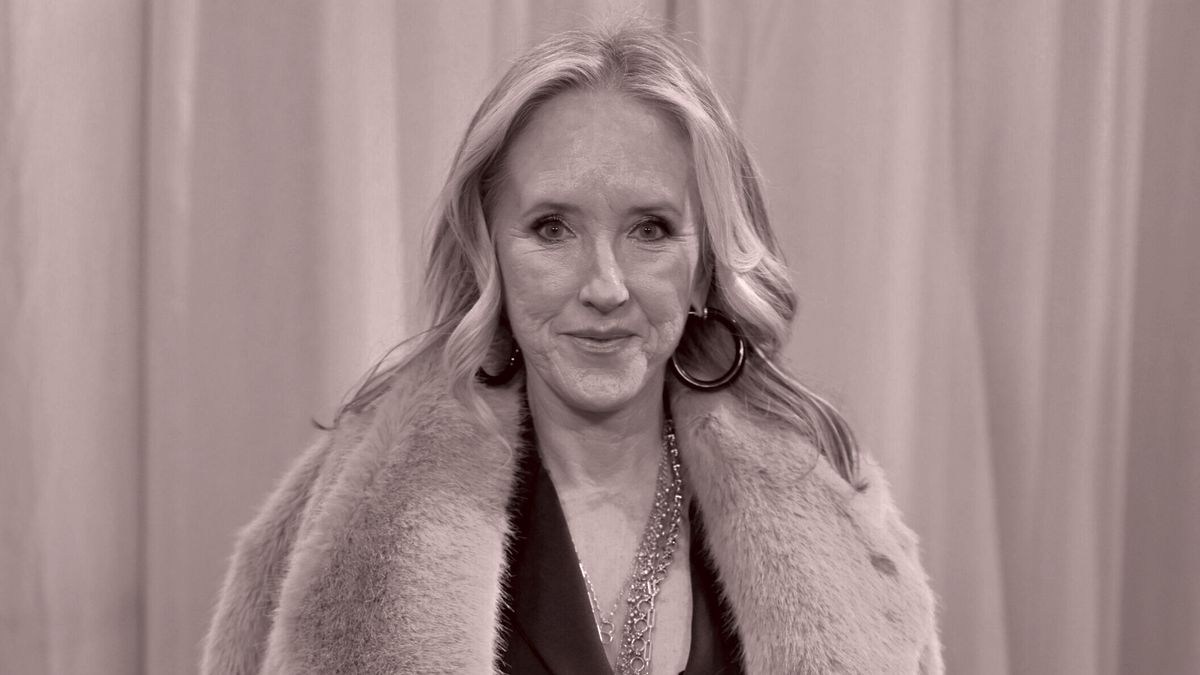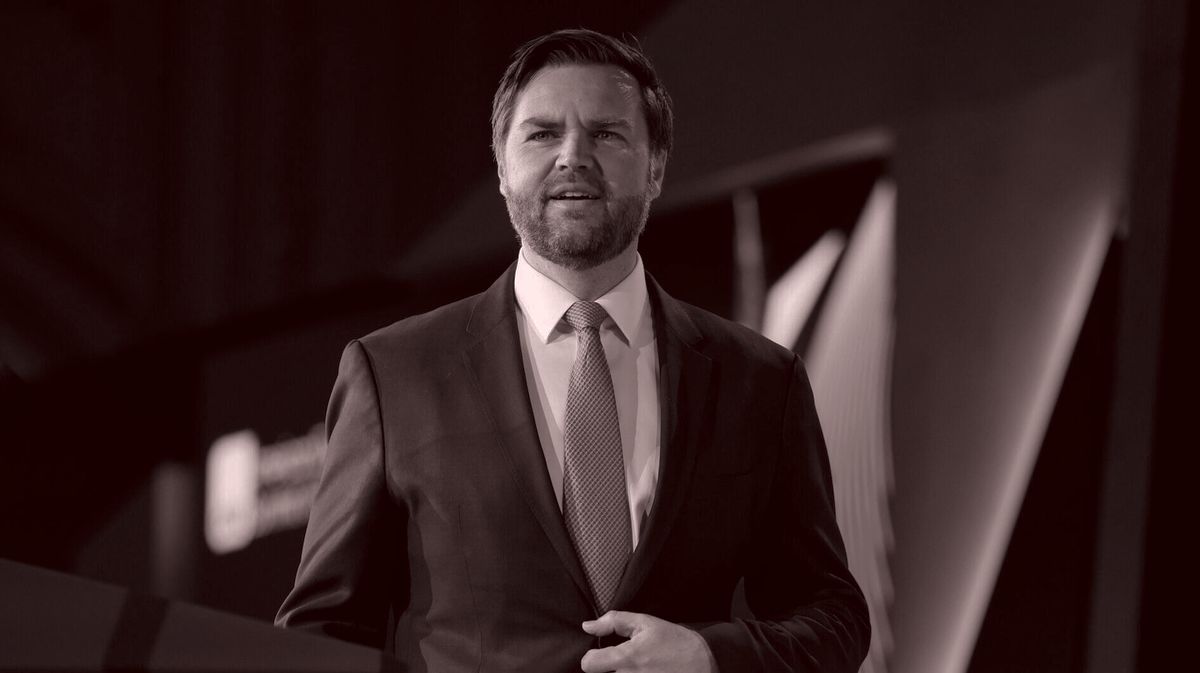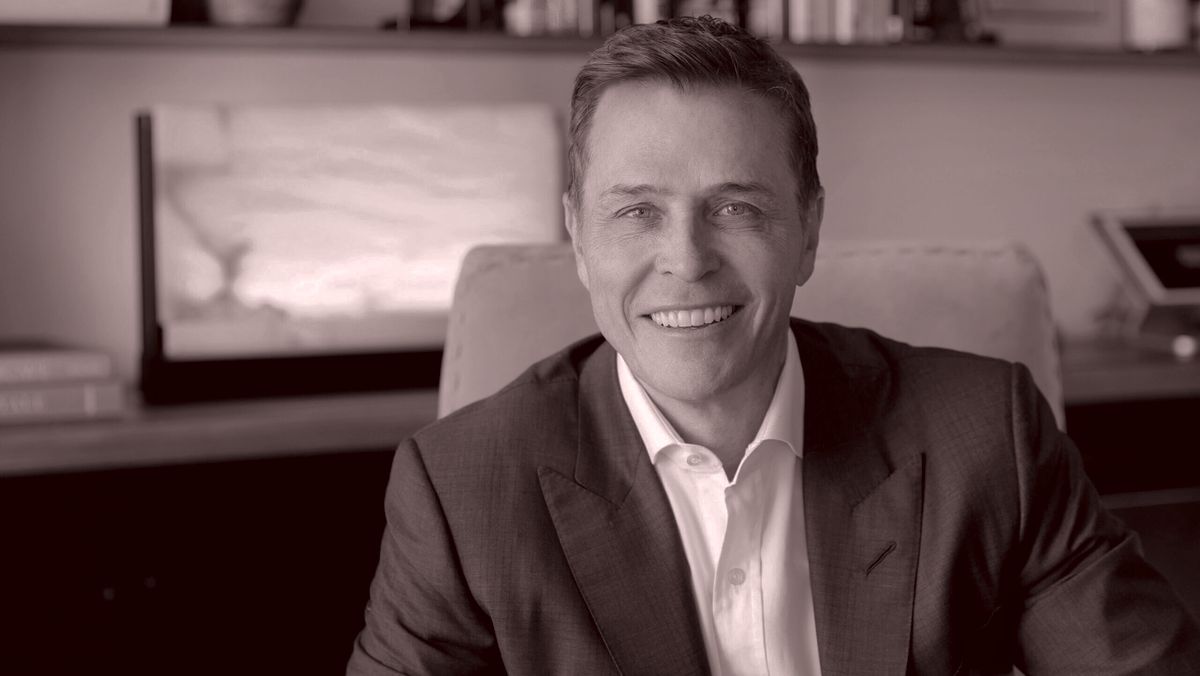Greetings from Washington, where it is indeed peak cherry
blossom season, and welcome back to In the Room. It was wonderful to see so many of you at Puck’s First Amendment Gala the other night, and I’m grateful for all the leads and tips. I also fell in love with The Occidental on this trip (a fine martini); I’ll check out The Ned when I’m back next month. I’m bound for Los Angeles tonight, off to Ojai next week. (Yes, I’ll still be in your inbox.)
In tonight’s issue, news, notes, and ruminations on
the media P.R. landscape, from Washington institutions like the Post and Politico to TikTok and Warner Bros. Discovery. It’s a small world, populated by a few familiar faces. And, like the industry it services, it’s now desperately in need of innovation.
🍸 On today’s edition of The Grill Room, Peter Hamby and I reflect on Jeffrey Goldberg’s Signalgate and its impacts, The
Atlantic’s place in the D.C. media firmament, and the delightfully surreal nature of smartphone-era journalism. Plus, some ruminations on the latest changes at CNN, where Mark Thompson has been getting Jeff Zucker’s old band back together. Follow The Grill Room on
Apple, Spotify, or wherever you prefer to listen.
Also mentioned in this issue: Robert Gibbs, Graydon
Carter, Kris Coratti, Kathy Baird, Brad Dayspring, Matt Dornic, Michael Wolff, Mike Hopkins, Megyn Kelly, Mark Halperin, Sheikh Mansour, Olivia Petersen, Jimmy Pitaro, Jamie Horowitz, Jen Salke, Todd Boehly, Alex Burns, Patrick
Whitesell, Peyton Manning, and many, many more…
Let’s get started…
|
-
F.C.C. vs. Disney: Federal Communications Commission chairman Brendan Carr announced late Friday that he had asked his team to open an investigation into Disney and ABC over its “D.E.I. practices,” which he said “may violate F.C.C. prohibitions on invidious forms of discrimination.” I guess that’s what $16 million gets you.
- Boehly’s U.K. bid: Todd Boehly, the Eldridge Industries chief and Chelsea F.C. chairman, is preparing to make a play for The Telegraph, the title that recently eluded Sheikh Mansour and Jeff Zucker’s RedBird IMI. Boehly has been in talks with National World chairman David Montgomery about acquiring National World, which owns The Scotsman and The Yorkshire Post, a
move widely seen as a precursor to a larger bid for The Telegraph. The National World deal may be easier to secure than the Telegraph deal: RedBird IMI bought The Telegraph for £600 million before being forced to sell it last year; Boehly’s group is reportedly planning to offer
less than £500 million.
- Amazon’s Salke bomb: Jen Salke was ousted from Amazon MGM Studios yesterday, which, as my partner Matt Belloni noted, seems “simultaneously abrupt and long overdue.” As Matt reported last night, Salke “had been in the role for more than seven often rocky
years and poured tens of billions of dollars into original film and TV, with less to show for it—both critically and commercially—than some of her rivals. This despite the power and ubiquity of Amazon Prime, and a video service that many of its more than 200 million subscribers consider to be ‘free.’” In any event, Amazon MGM will now be run by Salke’s old boss, Mike Hopkins, with Courtenay Valenti running the film division and Vernon Sanders
overseeing the TV studio.
- Halperin’s hero: Credit to Lachlan Cartwright and Ravi Somaiya, the proprietors of the Breaker media newsletter, for unearthing the identity of the financier fueling Mark Halperin’s post-#MeToo resuscitation effort. The duo reported this week that Andrew Intrater, a Trump donor and cousin of Russian-Israeli oligarch Viktor
Vekselberg, has provided millions of dollars to Halperin’s 2WAY media platform, which recently joined Megyn Kelly’s MK Media podcast network.
- And finally…: Some media headlines you may have missed: Former Endeavor chairman Patrick Whitesell bought a 10 percent stake in Peyton Manning and Jamie Horowitz’s Omaha Productions, valuing the company at more than $750 million; Jimmy Pitaro is moving ESPN’s Los Angeles-based SportsCenter staff to Bristol, in a cost-cutting measure; and, in the end of an
era, the Sundance Film Festival is moving from Park City to Boulder.
|
|
|
Ironically, what’s plaguing media organizations right now—apart from the
diminished revenue and the daily beatings from the White House, of course—is a lack of storytelling. No wonder everyone from the Post to Politico is looking for a few good comms.
|
|
|
This week, I was having lunch with a news executive in Washington, D.C., when the
conversation turned to press relations and, more specifically, the importance of storytelling. (I know, I cringe at that word, too.) The consensus we reached was that his news organization—and, indeed, every media organization—needed to take a more aggressive and proactive approach in articulating its own story, lest it be defined by its critics and competitors, as well as the restive watercooler grumblers who bitch and moan about their bosses around town and, frankly,
to me via Signal. (We can’t all be in the “Houthi PC small group.”) It’s not enough for a P.R. chief to play defense, we agreed—they need to play offense, too.
Perhaps nothing illustrates the point so well as the fact that you, dear reader, could probably proffer several guesses as to which news organization I’m talking about. The Washington Post has been consumed by devastatingly negative press
for years, and its outgoing comms chief Kathy Baird could no more stem the tide of 15 months of anti–Will Lewis sentiment than her predecessor, Kris Coratti, could offset the Post’s sudden turn on her boss, Fred Ryan. (As I reported
earlier this week, Baird is leaving the Post under more contentious terms than she’d disclosed: Her disagreements with Lewis were severe enough to warrant her engaging a lawyer, who is now advising her on whether to sign a nondisparagement agreement. Coratti, of course, traded down and walked into the Chris Licht chamber of horrors.) In lieu of any compelling story about what either publisher was trying to accomplish, both Fred and Will’s reputations have been
defined by their detractors, led by the Post’s own emeritus critic, Marty Baron.
Across the Potomac, Politico’s own
longtime P.R. chief, Brad Dayspring, is vacating his post after nearly a decade on the job. By the time he joined, in 2016, Politico was already well beyond its scrappy startup days—a honeymoon period when the buzz comes for free—and already transforming into the staid transatlantic institution that Mathias Döpfner would eventually acquire for more than a billion dollars. Of course, it is precisely during these moments when complacency
can set in. As Politico alumni kept leaving to start the next big thing—Jim VandeHei, Mike Allen, and Roy Schwartz launched Axios in 2017; Jake Sherman, Anna Palmer, and John Bresnahan launched Punchbowl in 2021—Politico lost both its swagger and its control of the narrative.
Never mind that it was an impressively profitable business that achieved the most successful exit of its era. And never mind the fact that it presciently moved into the robust B2B business, with enviable returns. The story as told in the press has long been one of drift, dissatisfaction, and defections, manifested most recently in the
shit-talking about Alex Burns—as if a departing journalist or two (or more) would undo its stable corporate affairs advertising business or annual recurring subscription revenue. Yet Dayspring, an infamously irascible guard dog reared in the crucible of Capitol Hill and the N.R.S.C., somehow never managed to get a more
compelling story into the press. (Maybe he tried, and was overruled.)
Of course, Axios may be approaching its own P.R. inflection point. Its honeymoon period was fueled not just by the bravado of its founders, and the quirk of their “smart brevity” format, but also by a marquee talent, Jonathan Swan, whose star turn as one of the nation’s leading Trump reporters neatly
coincided with the most lucrative political story in modern memory. In the second Trump era, with Swan at the Times and the entire industry facing economic headwinds, Axios still boasts an impressive roster of reporters (Alex Thompson, Barak Ravid, Sara Fischer, Dan Primack, etcetera) but much of its success still rides on the editorial contributions of VandeHei and Allen.
As VandeHei
said on my Grill Room podcast, great reporters are extremely hard to come by. Jim and Mike certainly have enough stamina to carry Axios through another cycle, but this sort of key man risk raises larger questions about the health of the business. (The same might be said for Punchbowl, because what is it without Jake?) In any event, that’s a
story Axios must figure out how to tell. Its advantage, of course, is that in addition to being its most influential journalist, Jim is the most effective advance man in the recent history of the town. Ever since its dawn, in 2017, Axios hasn’t simply gathered news about Washington, it’s narrated its own journey and intentions—a clever touch.
|
Alas, if good reporters are hard to come by, good comms people are perhaps even
harder to find. Tellingly, Lewis has yet to identify Baird’s successor at the Post, and seems content to let her duties pass to her deputy, Olivia Petersen, for the foreseeable future. More tellingly, Politico E.V.P. Jonathan Greenberger recently reached out to Petersen about filling Dayspring’s job, as I reported earlier this week.
In the meantime,
Politico is relying on the services of former ABC News comms veteran Heather Riley (a former colleague of both Greenberger and Politico co-founder John Harris), who runs the P.R. firm Haven Strategies alongside fellow ABC alum Chris Vlasto. And in the most telling sign of comms skill scarcity, Riley and Vlasto are also responsible for handling communications for CBS News and The Daily Beast, respectively, both
of which are led by former ABC News colleagues—Wendy McMahon and Ben Sherwood, respectively—and enduring long turns in the barrel. (Albeit at different scales: Everyone here knows the saga of CBS News, but you have to go out of your way to stay up on Ben and Joanna’s latest exploits.)
Coincidentally, Haven has also been providing their services to
TikTok, where the preeminent comms veteran of our age, Zenia Mucha, took up residence as chief communications officer after her 20-year run as Bob Iger’s protector at Disney. In this week’s biggest piece of P.R. news, Zenia announced that she’d hired Nathaniel Brown, the former P.R. chief for David Zaslav at Warner Bros. Discovery (and for the Murdochs’ Fox Corp. before that), to serve as TikTok’s corporate
communications chief—a title so similar to Zenia’s own that it practically confirms the unspoken reason for his hire: Zenia picked him to be her successor. (No, she’s not leaving yet, but after working for Iger, she probably recognized the importance of starting the succession process early).
In any event, Nathaniel’s return from the wilderness is illustrative of a broader point about P.R.
chiefs, and the limits of their influence. Nathaniel left WBD in January of last year after Zaslav grew frustrated with the torrent of negative press that has surrounded him since the Warner-Discovery merger closed. In a brief, prelapsarian period before the merger, Vanity Fair afforded Zaz the role of Hollywood savior. His long, hard fall from grace began not long thereafter, with the layoffs and budget cuts; wound its way through an ill-timed party photoshoot with
Graydon Carter in Cannes; and culminated with a New York Times Magazine profile that branded Zaz as the man who “blew up Hollywood.” In David’s mind, it seemed, Nathaniel bore responsibility for this. But the dirty little secret about P.R. is that the aides can exert only as much influence as the principals will allow. Indeed, Nathaniel had advised against the Cannes party to no avail. To blame him for Zaslav’s missteps is sort of like blaming former CNN P.R.
leads Matt Dornic and Coratti for Chris Licht’s career-ending profile in The Atlantic. At the end of the day, it was Chris’s decision to shit-talk his predecessor while doing deadlifts at the
gym.
Now, of course, Zaz is entrusting his image to Robert Gibbs, the one-time Obama White House press secretary who went on to serve as global chief communications officer for then-C.E.O. Steve Easterbrook at McDonald’s. Has it made a difference? Zaz has actually notched quite a few wins of late—his streaming business is growing, and expected to top a billion in
profit this year; Warner Bros. and HBO have delivered a number of hits for both Max and rival services; and he managed to secure lucrative new deals with pay-TV providers despite losing the NBA, which may have cost Brian Roberts more than it was worth in the long term. Meanwhile, Zaz has aggressively reduced his debt load by nearly $20 billion, which, as my partner Bill Cohan has noted, may portend a credit rating upgrade. (This is not investment
advice, or whatever Bill says.)
And yet, just this week, Zaz was the subject of another brutal Times piece, by Brooks Barnes, noting his failure to turn around the Warner Bros. film studio. On Friday, Variety followed up with an article intimating that his studio heads, Mike De Luca and Pam Abdy, could be on the
chopping block (naturally, my colleague Kim Masters was three weeks ahead of them). And I’m reliably told that Michael Wolff is putting the finishing touches on his own, more comprehensive takedown. “Is there something you can do about Zaslav and his bad press,” one famed P.R. guru texted me this morning.
Ostensibly, that’s a question for Gibbs. Or is it a question for Zaz himself? Or does it even matter anymore? One blind spot journalists often have is to assume that bad press will affect change at an organization. In the end, though, leaders are dealing with far more existential challenges and long-term objectives, and, most importantly, often maintain the unwavering support of their boards. Bad press is usually downstream
from larger problems, or self-created and ignorable. Indeed, Zaz’s film studio accounts for just 7 percent of his business, and one hit this summer could turn the narrative around. By the same token, all the bitching about Will Lewis and Alex Burns didn’t matter a whit to the owners of their respective organizations: Jeff still has Will’s back, and Burns got a promotion. But, to the point the aforementioned executive made, it’d sure be a lot nicer if all these folks were still
getting the old Vanity Fair treatment—and it’d probably help with ad sales and staff retention, as well.
Anyway, earlier this week, I learned that Dornic had also thrown his hat into the ring for that Politico job. If that doesn’t work, maybe he can try his luck at the Post. There’s plenty of work to go around.
|
|
|
Puck fashion correspondent Lauren Sherman and a rotating cast of industry insiders take you deep behind the scenes of
this multitrillion-dollar biz, from creative director switcheroos to M&A drama, D.T.C. downfalls, and magazine mishaps. Fashion People is an extension of Line Sheet, Lauren’s private email for Puck, where she tracks what’s happening beyond the press releases in fashion, beauty, and media. New episodes publish every Tuesday and Friday.
|
|
|
A professional-grade rundown on the business of sports from John Ourand, the industry’s preeminent journalist,
covering the leagues, players, agencies, media deals, and the egos fueling it all.
|
|
|
Need help? Review our FAQ page or contact us for assistance. For brand partnerships, email ads@puck.news.
You received this email because you signed up to receive emails from Puck, or as part of your Puck account associated with . To stop receiving this newsletter and/or manage all your email preferences, click here.
|
Puck is published by Heat Media LLC. 107 Greenwich St, New York, NY 10006
|
|
|
|












